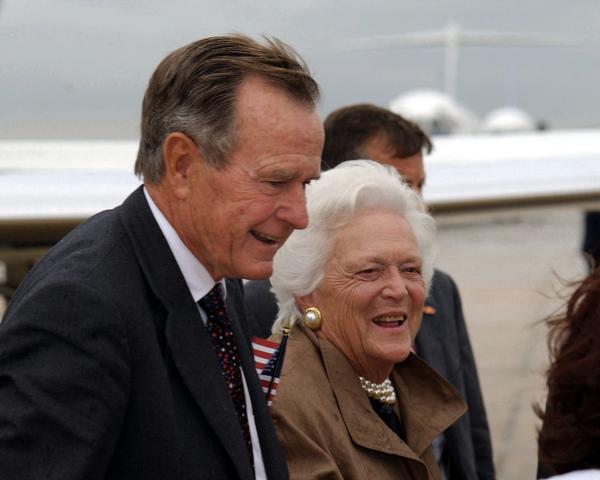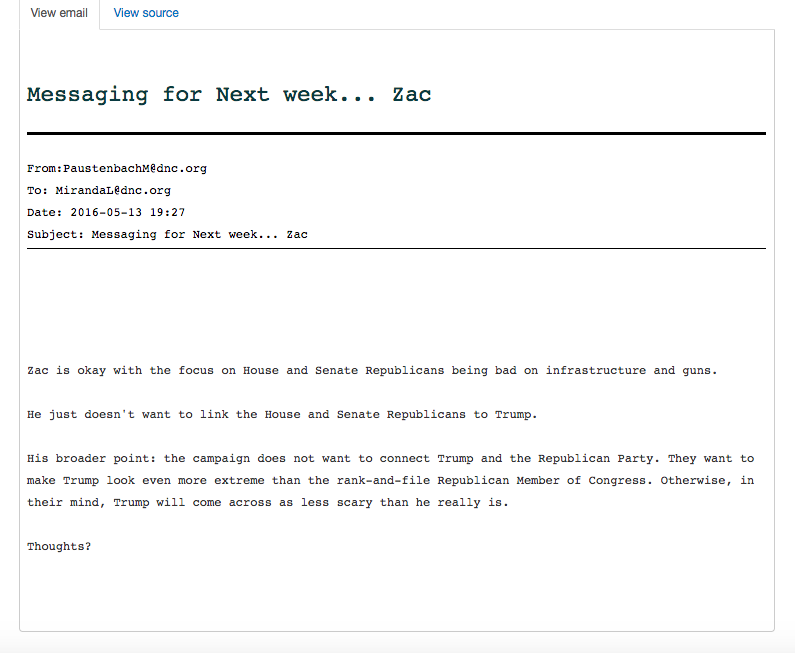Why Republicans Are Supporting Hillary Clinton

By:
There's a growing list of Republicans who say they're going to vote for Democratic nominee Hillary Clinton in the presidential election, and the break in ranks exposes the complicated reality of the Republican Party.
"What this election has revealed is the big split between Republican elites and Republican voters," Joshua Dienstag, a professor of political science and and law at the University of California, Los Angeles told ATTN:. Some Republican elites, or high-ranking powerful Republicans, have such divergent views about the party that they're voting for Clinton rather than their party's own nominee.
Perhaps the biggest name planning to step over the party line is former president George H.W. Bush.
 Wikimedia Commons - wikimedia.org
Wikimedia Commons - wikimedia.org
Politico reported on Monday that former Maryland Lieutenant Governor Kathleen Hartington Kennedy Townsend, the daughter of Robert F. Kennedy, revealed on Facebook that the 92-year-old would vote for Clinton and not Republican nominee Donald Trump.
Other powerful Republicans have moved to the Clinton camp as well. Here are just some of them:
- Carlos Gutierrez, former secretary of commerce under President George W. Bush.
- Richard Armitage, former deputy secretary of state and President George W. Bush.
- Rosario Marin, former Treasurer of the United States under President George W. Bush.
ATTN: talked to experts about the Republicans who are jumping ship to support Clinton.
Dienstag said this election exposed the ideological divide between the most powerful Republicans and the broader conservative voting base.
"Republican elites are generally tolerant, cosmopolitan, future-oriented people, but that’s not so much the case with Republican voters," said Dienstag. "Usually these differences are papered over with issues on which they agree, like low taxes and a strong military, but the splits appear on issues like immigration, race, and trade."
According to Dienstag, Republican elites don't want to lose control of the party so they're supporting Clinton instead of Trump, whose positions are more extreme. Dienstag believes that Trump has alienated many Republicans, and that could create a power shift.
"Republican elites, for once, have lost control of the nomination process and they are afraid of losing control of the party permanently," he said. "That’s why some of them are ready to vote for Clinton rather than endorse their own irrelevance to the Republican party."
One issue in particular could be costing Trump support from some Republicans.
Kyle Kondik, managing editor of the Crystal Ball from the University of Virginia Center for Politics, told ATTN: that the disconnect between Republicans and Trump could come from his weakness on foreign policy.
"I think primarily the elite Republicans who are supporting Hillary Clinton or at least not supporting Donald Trump, they may feel like Clinton is stronger than Trump on foreign policy," he said.
Clinton was secretary of state from 2009 to 2013 under the Obama administration, which Trump has tried to use against her.
Republican Brent Scowcroft, who was a top foreign policy advisor to four Republican presidents, revealed in June that he's supporting Clinton because of her experience.
"Her longstanding relationships with a wide array of world leaders, and their sense of her as a strong and reliable counterpart, make her uniquely prepared for the highest office in the land," he wrote in an email, according to Politico. The email did not mention Trump at all.
Trump's statements on foreign policy have focused on building a relationship with Russia, improving trade with China and fighting terrorism.
This month Trump said that if he were elected he would give the Pentagon 30 days to come up with a plan to destroy the Islamic State. However, critics say Trump's plans to fight terrorism overseas lack specifics. His previous comments about possibly pulling troops out of the Middle East are unpopular with some Republicans.
"He's sort of talked about not being as committed overseas as some Bush administration Republicans are and they're not comfortable with this," said Kondik. "That's why a lot of the Republicans who have endorsed Clinton have been Republican elites."
The migration of Republican elites over to Clinton's camp comes during a calculated strategy by her campaign: separate Trump from the Republican Party.
Buzzfeed reports that a leaked internal email sent by Mark Paustenback, the Democratic National Committee's national press secretary and deputy communications director, shows that the Clinton campaign wanted to distance Trump from his own party.
 WikiLeaks - wikileaks.org
WikiLeaks - wikileaks.org
The email sent in May and released by WikiLeaks outlined a discussion between Paustenback and Zac Petkanas, Clinton's rapid response director. It said that "the campaign does not want to connect Trump and the Republican Party."
Paustenback added that the Clinton campaign wanted to emphasize the extreme nature of Trump's positions.
"They want to make Trump look even more extreme than the rank-and-file member of Congress," said the email.
Despite the divisions between Trump and the establishment Republicans of his party, experts think they probably wont cost him the election.
"I don't know how important it is one way or the other," said Kondik. "I think we've seen Trump again lately try to create more unity among the Republican base."
Dienstag thinks that Trump supporters outnumber the powerful leaders of the Republican Party. "Republican elites are a small number of people and many of them live in states that Republicans are not likely to win, like New York, California, and Maryland," he said.
However, he thinks the division in the party could damage his chances with moderate Republican voters.
"The spectacle of a divided party is damaging for Trump and will cost him votes among people who are on the fence or who just won’t show up to vote," he said.
Update: This piece originally included Leon Panetta among the Republicans supporting Hillary Clinton for president. This was an error. While Panetta was once a Republican, he switched parties before he was elected to Congress in 1976.
RELATED: Meet the Republicans Who Want to Elect Hillary Clinton
